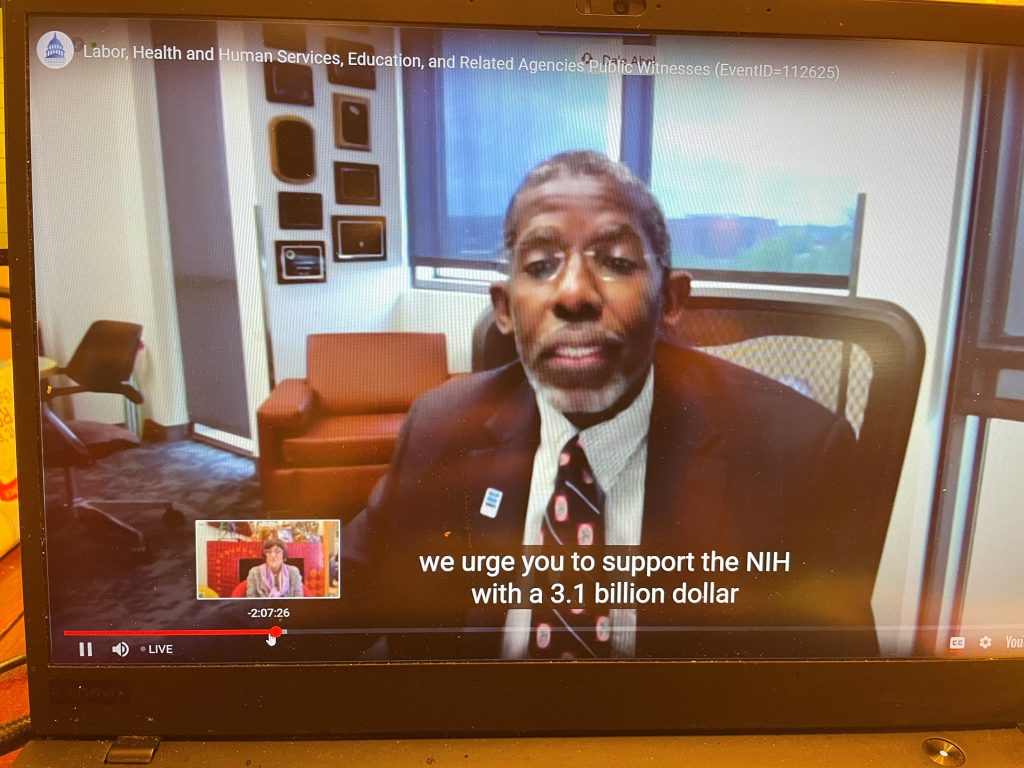The U.S. Constitution requires that Congress has “the power of the purse string” and must pass annual appropriations by October 1 of each year.
Each year the House and Senate Appropriations Committees divide work into subcommittees with jurisdiction over certain federal programs. Of particular importance to the Endocrine Society are programs within the Subcommittee on Labor, Health and Human Services, Education and Related Agencies (LHHS) that funds the National Institutes of Health (NIH), Title X, and the Centers for Disease Control and Prevention (CDC).

As in previous years, the Endocrine Society submitted written testimony to both subcommittees in support of federal funding for our priority programs. With the COVID-19 pandemic illustrating the importance of funding public health programs, our requests included at least $46.1 billion for the NIH, at least $10 billion for CDC, and at least $737 million for Title X.
Our testimony provided further evidence in support for increased funding for these programs. We gave examples of recent cross-cutting advances in endocrine research as an example of the importance of providing a $3.2 billion increase in the base appropriation for the NIH, and the need to provide proportional increases across the various Institutes and Centers. To demonstrate the public health impact of the CDC, we highlighted how the National Diabetes Prevention Program addresses the increasing burden of prediabetes and type 2 diabetes in the U.S. We also emphasized the important role that Title X-funded health centers play in preventing unintended pregnancies, resulting in savings of $7 billion to federal and state governments. We also called on Congress to provide emergency supplemental funding of $10 billion for the NIH to enable new COVID-19-related research and support research recovery from the pandemic.
In addition to the Endocrine Society testimony, the House LHHS Subcommittee invited Endocrine Society past president Dale Abel, MD, PhD, to provide testimony on behalf of the Friends of the National Institute for Diabetes and Digestive and Kidney Diseases (NIDDK) as witness at the subcommittee’s hearing on May 19. This was an extremely coveted spot to have “air time” with the subcommittee — only 25 public witnesses were selected. Abel’s testimony amplified the same messages as the Endocrine Society about NIH funding, but also added a request for the NIDDK to receive a proportional increase and provided research highlights including diabetes and other endocrine and metabolic diseases as well as digestive, liver, hematologic, and urologic examples across the NIDDK’s research portfolio.
With the COVID-19 pandemic illustrating the importance of funding public health programs, our requests included at least $46.1 billion for the NIH, at least $10 billion for CDC, and at least $737 million for Title X.
Following subcommittee hearings, attention will turn to the full appropriations committees of the House and Senate to pass individual appropriations bills or, more likely, a combined (omnibus) appropriations package to fund the federal government. The outlook for final passage is unclear and is likely to run up against the deadline of September 30, 2021. The Endocrine Society will continue to advocate for funding increases for its priorities.
TAKE ACTION: The Endocrine Society needs all U.S. members, particularly those funded by the NIH to join our advocacy efforts for us to truly have influence on federal funding decisions. Please join our online advocacy campaign to send an email to your representative and senators with our funding recommendations. In addition, be on the lookout for information this summer to join a virtual Hill Day/Rally for Medical Research on September 23, 2021, to meet with members of your congressional delegation to ensure that they finalize the appropriations process and support the Endocrine Society’s public health priorities.

